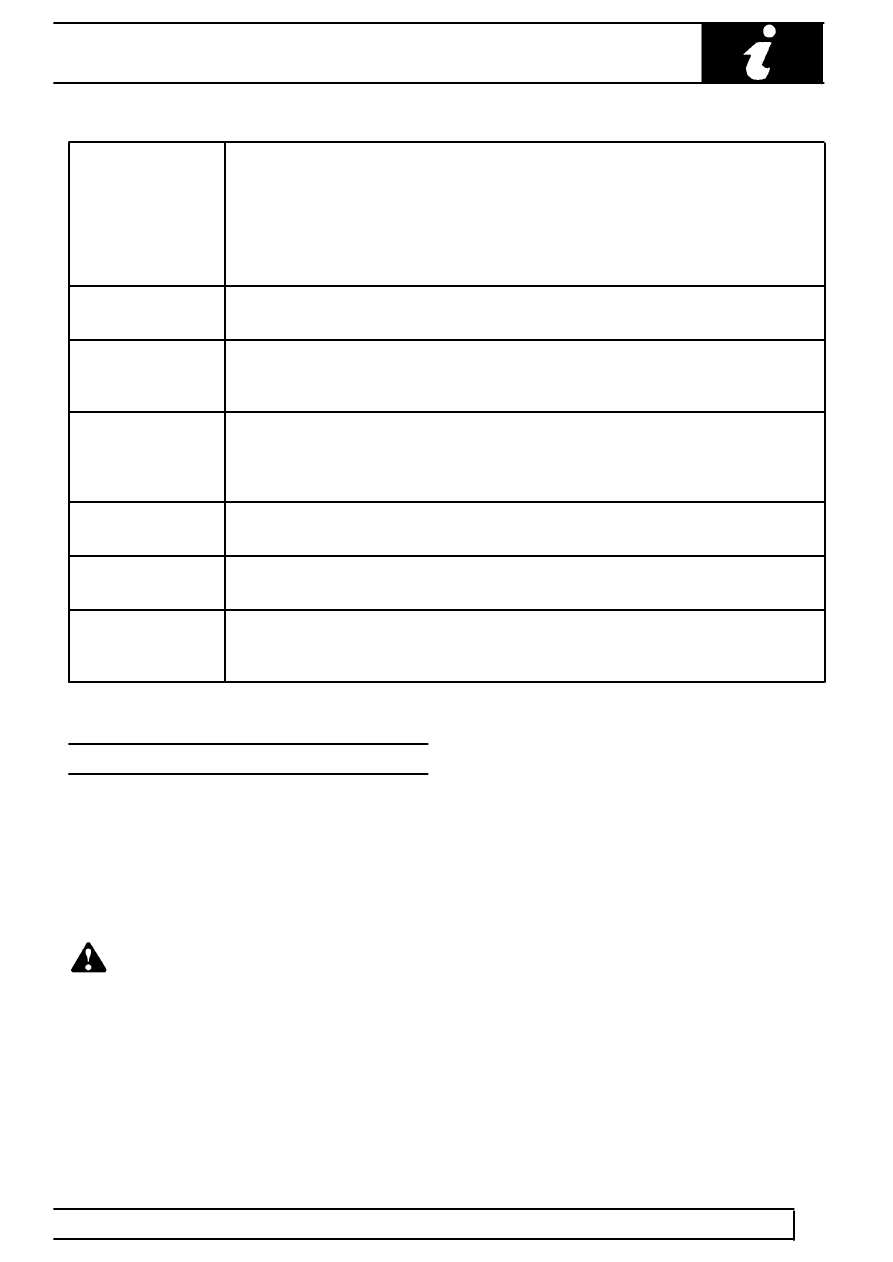Range Rover Classic

LUBRICANTS, FLUIDS AND CAPACITIES
3
INFORMATION
Propeller shaft Front
and Rear
NLGI - 2 Multi-purpose Lithium based GREASE
Lubrication nipples
(hubs, ball joints
etc.)
Seat slides
Door lock striker
Brake and clutch
reservoirs
Brake fluids having a minimum boiling point of 260
°
C (500
°
F) and complying with
FMVSS 116 DOT4
Engine cooling
Use an ethylene glycol based anti-freeze (containing no methanol)
system
with non-phosphate corrosion inhibitors suitable for use in aluminium engines to ensure
the protection of the cooling system against frost and corrosion in all seasons.
Battery lugs,
Petroleum jelly.
Earthing surfaces
NOTE: Do not use Silicone Grease
where paint has
been removed
Air Conditioning
Refrigerant R134a
System Refrigerant
CAUTION: DO NOT use any other type of refrigerant.
Compressor Oil
Nippon denso ND-OIL8
UNIPART R134a ND-OIL8
ABS Sensor
Silicone grease: Staborags NBU - Wabco 830 502,0634
bush-rear
Wacker chemie 704 - Wabco 830 502,0164
Kluber GL301
LUBRICATION PRACTICE
Use a high quality oil of the correct viscosity range and service classification in the engine during maintenance and
when topping up. The use of oil not to the correct specification can lead to high oil and fuel consumption and
ultimately to damaged components.
Oil to the correct specification contains additives which disperse the corrosive acids formed by combustion and
prevent the formation of sludge which can block the oilways. Additional oil additives should not be used. Always
adhere to the recommended servicing intervals.
WARNING: Many liquids and other substances used in motor vehicles are poisonous. They must
not be consumed and must be kept away from open wounds. These substances, among others,
include anti-freeze windscreen washer additives, lubricants and various adhesives.
